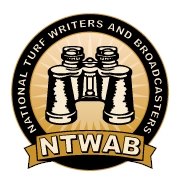NTWAB Opposes CHRB's Licensing Requirements for Media


The National Turf Writers and Broadcasters has written a letter to the California Horse Racing Board opposing its recently announced plan to require media members to be licensed in order to enter stable areas.
CHRB spokesman Mike Marten sent an email Aug. 8 outlining the plan that will require members of the media who wish to have backstretch access to pay $75 for a license by Aug. 31. This policy would end the long-standing standard of tracks overseeing media access to the backstretch.
The NTWAB does not believe that members of the media are subject to licensing by a racing board. In a letter to CHRB executive director Scott Chaney, NTWAB president Tom Law outlined the organization's opposition.
"The National Turf Writers and Broadcasters vehemently opposes the Aug. 8, 2022, decision by the CHRB to 'require all individuals who enter the stable areas, including members of the news media, to obtain a CHRB license,'" Law said. "The NTWAB board of directors and its members strongly encourage the CHRB to reverse this decision and allow the news media to continue to operate independently, and after the approval of racetrack management."
As outlined in the CHRB release, the policy will apply to media members who frequently access stable areas.
"Historically, all news media have been screened and approved by each track's publicity department. Those with legitimate business have been granted access to stable areas. This practice will continue for those who infrequently need access to stable areas," the CHRB release said. "Those with a more regular presence in stable areas will need to acquire a CHRB "Z" (other) license from one of the CHRB licensing offices.
"The fee for a Z license is $75, and depending on the applicant's birth date, the license is good for two-to-three years. All applicants must be fingerprinted and are checked for California and nationwide criminal history. Individuals have until Aug. 31 to come into compliance."
Law's letter portrayed the policy as an incorrect reading of CHRB rules.
"Professional members of the news media do not fall under the California Code of Regulations 2022 Rules and Regulations (Title 4, Division 4, Article 4 [Occupational Licenses], Rule 1481)," Law said. "Members of the news media are acting independently and not in the involvement of operation of a racetrack and/or care of racehorses."
Law then noted First Amendment concerns associated with such a policy as it would put a state regulatory board in position to sanction members of the press by denying backstretch access.
"Members of the news media, for decades, have been granted access to racetracks across the country through publicity departments and the Turf Publicists of America to conduct business without a license and/or requirement to pay a fee to do their jobs. The requirement by the CHRB for members of the news media to purchase a license sets an unnecessary and bad precedent for the racing industry besides the First Amendment implications of government licensing the free press. If media members needed to be licensed, the same logic could be twisted to say the CHRB then could discipline media members as well."
The Associated Press Sports Editors also sent a letter to the CHRB opposing the new policy.
"It has come to our attention that the California Horse Racing Board just issued a directive that media wishing to regularly cover the backstretch at your tracks in California, to include Santa Anita Park, Del Mar, Los Alamitos, and Golden Gate Fields, must obtain a license from the CHRB, which includes finger printing and a background check," the letter said. "In short, in the strongest possible terms, we object to it in that it allows you the ability to control the coverage and make us pay a fee for the "privilege." Nowhere in the directive does it even explain what offenses might disqualify someone from getting a license or if it is just the whim of a staffer. It's our understanding this move was made without consulting any media groups for input."
The letter went on to outline similar background check attempts in other sports that did not stand. It concluded, "We're sure this rule was well intended but sometimes even the most thoughtful plans have unintended consequences. We believe, and sincerely hope, this is the case.
"So, we respectfully ask that this directive be rescinded. It has not yet become a national issue of regulatory overreach and that's the way we would prefer it. Our preference is always to get in front of an issue before it blows up allowing for a graceful and quiet solution by everyone.
"Please consider our request. We are always available to talk about this."
